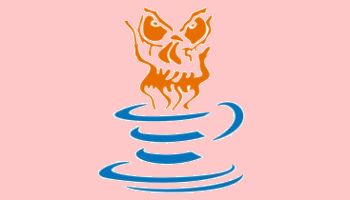Furious JCP Gives Green Light To Java 7/8 Roadmaps

The JCP approved the specs for Java 7 and 8, but hit Oracle hard for its licensing and monetisation strategy
Oracle got its wish and gained approval for the technical roadmaps governing Java Standard Edition 7 and Java 8, but not without hearing the voice of dissent from several prominent members of the Java community.
The Executive Committee (EC) of the Java Community Process (JCP) voted to approve the Java Specification Requests (JSRs) for Java 7 (JSR 336) and Java 8 (JSR 337), based on the technical content of the JSRs. However, based on many of the comments, much of the underlying sentiment amounted to a vote of “no confidence” in the JCP and, by extension, Oracle itself.
Resignation And Disquiet
The votes for both JSRs were 12 for and 3 against, with Apache, Google and individual member Tim Peierls voting against the specifications. The negative votes and all the negative comments were based on field-of-use (FOU) restrictions on Java and Oracle’s refusal to provide the Apache Software Foundation (ASF) with a Technology Compatibility Kit (TCK) for its Harmony open-source implementation of Java.
Apache had recently threatened to quit the JCP if it did not receive the TCK in question. The open-source software supporting organisation has not stated its decision on how it will proceed now that the JSRs have been approved.
However, the vote did prompt one Java SE/EE (Standard Edition/Enterprise Edition) member to quit. Peierls announced his resignation from the executive committee in a blog post.
In the post Peierls said: “Several of the other EC members expressed their own disappointment while voting Yes. I’m reasonably certain that the bulk of the Yes votes were due to contractual obligations rather than strongly held principles. It’s not that I’m shocked, shocked that votes can be bought, but it finally made it clear to me that my vote was worthless.”
Among its list of comments criticising the JCP votes, Apache said: “This JSR’s TCK licence includes a ‘Field of Use’ restriction that restricts commonplace and mundane use of independent implementations, a licensing element that not only is prohibited by the JSPA [Java Specification Participation Agreement] but also has been unanimously rejected by the majority of the members of the JCP EC – including Oracle – on several occasions.”
Red Hat concurred, saying, “We hope that all Specification Leads will… rank the viability of the Java Community higher than one individual member’s abilities to monetise the platform.”
The issue of the monetisation of Java is central to Oracle. As Peierls said, “The big boys want big apparent forward motion because it means more stuff to sell, more contracts and control. As a result, we are whipped to a frenzy with messages (both subliminal and explicit) that Java is falling behind, losing mindshare, being lapped by C#, anything to sell the idea that more is desperately needed – when, in fact, most folks could make do with a lot less.”
Perhaps the most telling comments come from Credit Suisse, which is more of an enterprise user member of the EC with no skin in the game as a vendor of Java technology.
It said, “While we recognise Oracle’s intellectual properties around Java, we strongly encourage Oracle to re-think its current position around licensing terms. We strongly support open source as a licensing model for contributions in the JCP.”
For its part, Oracle listed several facts and figures on the usage of Java, including that more than 1.1 billion desktops run Java, there are 930 million Java Runtime Environment downloads each year, three billion mobile phones run Java – 31 times more Java phones ship every year than Apple and Android combined.
